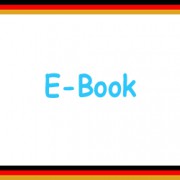Today in German Words Explained we explain the word “Parkscheibe“.
This is a blue and white disc that you place in the windscreen of your car to show your arrival time when you use certain parkings spaces that require this.
A sign will tell you how long you can park for, using the Parkscheibe. Usually this will be 30 minutes, an hour or even two hours. There are even some stations offering four hours using this method.
It is important to understand that you set the disc to the arrival time, and if you arrive between the half hours, then you set it to the next half hour.
To hear a simple explanation in German, listen to the podcast:
(Press the “play” button to listen to the podcast)





[…] are some quite simple rules, usually involving a think called a Parkscheibe or quite simply a ticket […]